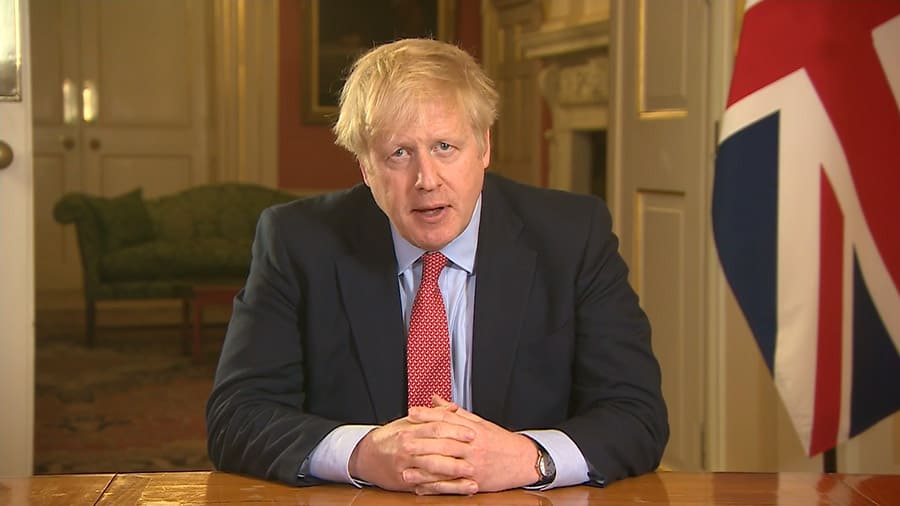LOCKDOWN: Non-essential retail premises to shut but mobility stores may be exempt

Addressing the entire nation last night, Boris Johnson stepped up measures to prevent the spread of coronavirus, confirming drastic new lockdown rules that are set to impact business leaders’ companies and almost every facet of people’s lives.
The actions are the strictest and widest-reaching by the government yet, with new rules including people being allowed to leave their home to exercise once a day, to travel to and from work where “absolutely necessary”, to shop for essential items, and to fulfil any medical or care needs.
Gatherings in public of more than two people who do not live together are also prohibited whilst retailers deemed to be selling “non-essential goods” have also been told to shut shop for the foreseeable future.
It comes as the COVID-19 death toll and confirmed cases in the UK continues to rise despite efforts by the government to reduce social interactions amongst people to curb the spread of the virus.
Which shops must close?
After the prime minister’s announcement, retailers called for clarification regarding which products and services were determined to be essential and allowed to the remain open.
The Ministry of Housing, Communities and Local Government has since highlighted the following retail businesses as being exempt from the order to close: supermarkets and other food shops, health shops, pharmacies, petrol stations, bicycle shops, home and hardware shops, laundrettes and dry cleaners, garages, car rentals, pet shops, corner shops and newsagents, post offices, and banks.
For those in the sector, the exemption of ‘health shops’ by the government would seem to indicate that mobility and independent living retailers selling aids to help people remain safe and independent at home are excluded from the order to shut shop.
However, guidance from the government stressed that shops that do remain open must ensure safety precautions are observed, including a distance of two metres between customers and shop assistants, only small groups allowed onto premises at any one time, and queue control outside of shops to achieve appropriate social distancing.
Mobility retailers take tough decisions
With retailers of mobility, access and independent living products still providing crucial services in the community, retail owners face the difficult task of trying to continue to supply and maintain medical equipment and install home adaptations whilst protecting staff and customers.
Despite mobility retailers seemingly being allowed to remain open, many have seen footfall disappear as end-users largely self-isolate, leading swathes of business owners temporarily closing their shops during the crisis.
Swiftly following the Boris Johnson’s national address last night, Scottish mobility retailer Mobility Solutions confirmed it was closing its stores, writing a message to customers explaining the company’s decision.
“We have taken the difficult decision to temporarily suspend our main onsite operations from Tuesday 24th March until further notice,” reads the message.
“While we have done everything we can to continue to operate fully, the health and safety of our customers, colleagues and the wider community is our top priority.”
Instead, the retailer, like many others in the sector, encouraged consumers to shop online or over the phone.
Another mobility retailer, West Midlands-based Easy Living Mobility, also confirmed that it was shutting its portfolio of stores after Boris Johnson’s speech, stating that the “time has come for us to close your community hubs or retail stores as some may call them and not by choice I may add!
“We will keep you posted on our return – but please be aware and share this – we will do our utmost to keep our most vulnerable mobile – by running a small team of experts that specialise in the repairing of medical devices such as stairlifts – powered chairs & scooters to name but a few.”
Changing ways of working
The crisis has led to many retailers having to change the way they work in order to continue to provide essential equipment and services to help the most vulnerable in society remain safe, mobile and independent – thus helping to reduce the strain on the NHS through preventable accidents and hospital admissions.
Numerous retailers are operating an appointment-only policy for showroom visits, providing free deliveries and still providing maintenance and repair callouts whilst others are finding novel ways to help the local community during the coronavirus outbreak, such Kardinal Independent Living’s new initiative.
With the latest lockdown measures are sure to have an impact on the mobility sector, THIIS has outlined in detail the support available for businesses from the government:
- Coronavirus Job Retention Scheme and what mobility companies need to do to access it
- Coronavirus cash grant for retailers and how mobility dealers can access it
- Coronavirus Business Interruption Loan Scheme and how mobility companies can access it [UPDATED]


